history

AMOOSED: a moose odyssey
When director and ethnologist Hana Nováková encountered an elk, it changed her life. And she wasn't the first. For centuries, people across continents and cultures have been fascinated by this ancient totem animal, one of the largest mammals in the northern hemisphere. Whereas in the past they wanted to conquer it, today they tend to listen to it. The director's cinematic odyssey is the result of several years of searching for the secrets of the moose. It leads from Czech forests through a Russian domestication station to the territory of the indigenous peoples of Canada. A collage of stories told from personal, spiritual, and scientific perspectives shows the moose as a guide between worlds, a symbol of balance and renewal, and a possible answer to the question of how we can heal our relationship with nature.“Filming animals across the planet is an extraordinarily epic undertaking—all the more so when it involves a ‘process film,’ i.e., the unfolding observation of events whose outcome we often cannot predict, even though we know for certain that they were triggered by the filming itself.” — Hana NovákováSource: Dok.revue
director: Hana Nováková
original title: AMOOSED: losí odysea
country: Czech Republic, Slovakia
year: 2025
running time: 76 min.

Blood of the Condor
This work of docufiction, filmed in collaboration with the Quechua community of the Altiplano plateau, bears witness to the secret sterilizations of women carried out by American health workers as part of the Peace Corps in Bolivia. In a stark narrative about powerlessness, intransigence, and grief, the camera absorbs the faces of the local people and the high mountain landscape. The soundtrack, created by the Teatro Collasuyo group, creates a raw composition from ambient noises, sobs, and traditional instruments. The title refers to a sacred Andean bird, which becomes a metaphor for the sacrifice and resistance of the indigenous people against colonialism and violence. “[The Blood of the Condor] is furious, lyrical, and unflinching—though it stops short of becoming didactic. In lieu of a traditional distribution strategy, Sanjinés and his team travelled around the Altiplano and small villages of western Bolivia with a projector, speakers, and a generator, showing the film on a white sheet. Sanjinés estimates 250,000 Bolivians saw the film, and protests in the capital inspired by the film’s critical portrayal of US intervention led to the expulsion of the Peace Corps from Bolivia in 1971.” — Lucia Ahrensdorf, Notebook Primer: The Grupo Ukamau Source: Mubi Notebook
director: Grupo Ukamau , Jorge Sanjinés Aramayo
original title: Yawar Mallku
country: Bolivia
year: 1969
running time: 69 min.
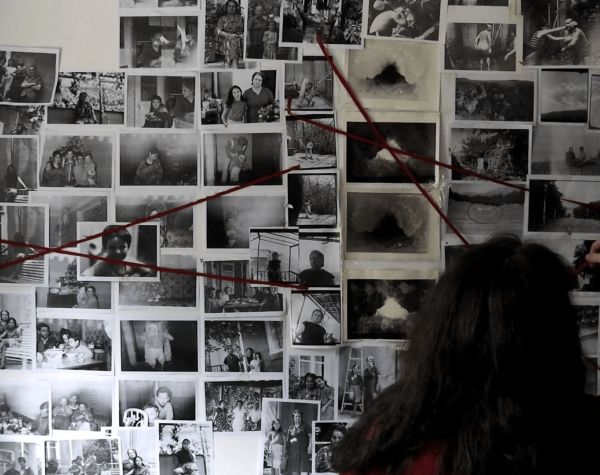
Father, Developed
Young men in Georgia in the 1990s died en masse of heart attacks as a result of the war. They left behind a generation without fathers, including Elene. This autobiographical portrait looks into a darkroom where the author develops photographs and films left behind by her father, lending them her own narrative, and thereby finding herself. “Between the earth and the land of the dead, a darkroom becomes the only dimension where the paths of a father and a daughter can cross.”
director: Elene Burtchuladze
original title: მამა, გამჟღავნებული
country: Georgia
year: 2024
running time: 21 min.
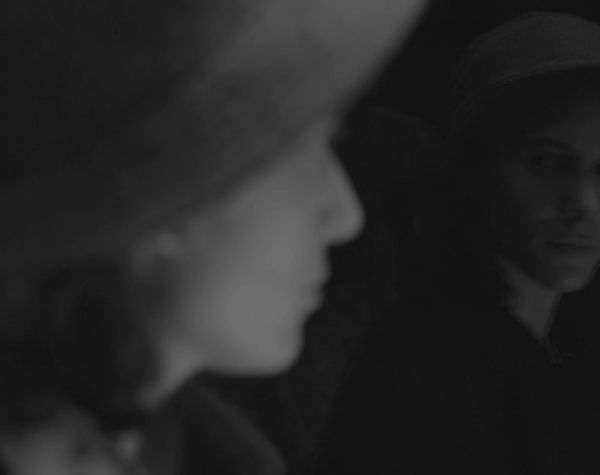
Fittko: Resistance and Exile
Director Allegra Stodolsky decided to continue her grandmother’s work in telling the story of their relative Lisa Fittko. A timely film which reflects upon the importance of the values fought for, which once again are under threat in today’s Europe. In 1930s Berlin, Fittko became politically active at a young age and joined leftist youth resistance, fighting against the rise of the Nazis. In using archival footage, re-enactment and the voice of Lisa Fittko herself, this documentary tells the story of the courage of a young woman who understood that freedom is not a guarantee and who chose to resist rather than stay silent in the face of oppression. “A woman who came of age during the rise of the fascist regime and chose to remain aware in the wake of fear.”
director: Allegra Stodolsky
original title: Fittko: Resistance and Exile
country: Czech Republic, Germany
year: 2025
running time: 28 min.
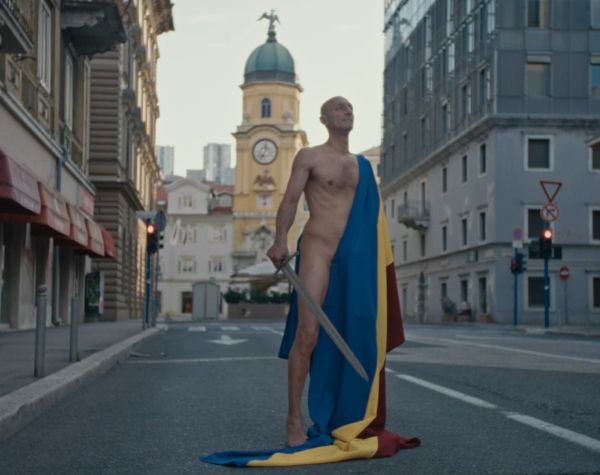
Fiume o Morte!
After World War I, the northern Croatian port city of Fiume experienced one of the most bizarre military campaigns in history. It lasted sixteen months and was led by Italian poet Gabriele D'Annunzio, who occupied present-day Rijeka with three hundred soldiers in September 1919. He founded his own state there and ruled it until the army of his native Italy rose up against him. The poet-dictator, who inspired Benito Mussolini, immortalized his reign in ten thousand period photographs. Rijeka native Igor Brezinović subversively revives them and, in a tangle of historical facts and exaggeration, in the gap between history and the present, discovers the roots of fascism. “D’Annunzio treated his occupation of Fiume with the same romanticism as his writing, even going so far as to obsessively have him and his men filmed and photographed to project a propagandistic ideal.” — Igor Brezinović
director: Igor Bezinović
original title: Fiume o morte!
country: Croatia, Italy, Slovenia
year: 2025
running time: 112 min.
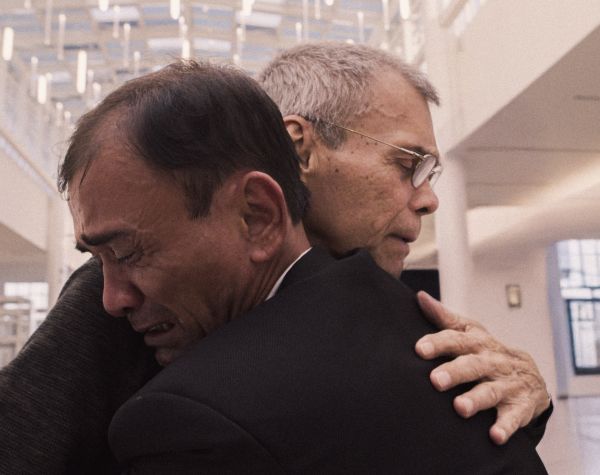
Child of Dust
Sang has struggled his entire life with the stigmatizing label of being a “child of dust.” This is how the unwanted offspring of Vietnamese women and American soldiers are referred to. Tens of thousands of them were born during the Vietnam War. Most of them never knew their fathers. Fifty years after the end of the conflict, Sang continues to search for his. He hopes that with the help of a DNA test, he will finally be able to find out where he belongs. But in order to find his new family, he must leave his current one. Just like his father once did. Nevertheless, he manages this emotionally demanding journey of self-discovery and acceptance with stoic calm. The same composure is evident in Mikael Lypinski's unobtrusive camera work and the gently melancholic soundtrack by Argentine composer Joaquín García. “Fatherhood in Vietnam is your social status. When something wrong happens to you, your father is your insurance for life… not having a father means that you don’t have social relevance.” — Weronika Mliczewska
director: Weronika Mliczewska
original title: Dziecko z pyłu
country: Poland, Czech Republic, Vietnam, Sweden, Qatar
year: 2025
running time: 93 min.

I am Taiwanese
The film, which took five years to make and was initiated by Senate President Vystrčil's visit to Taiwan in 2020, maps the current geopolitical situation of this island nation and seeks not only historical but mainly current parallels between Taiwan's position vis-à-vis China and Russia's position vis-à-vis smaller countries, including Ukraine, the Baltic states, and even the Czech Republic. China's pressure on Taiwan is intensifying, and this island state is increasingly under threat. Will it maintain its freedom and independence in today's complex world, where conflicts are on the rise and, with the possible help of the democratic world, it is becoming increasingly complicated?The screening will be followed by a debate with Miloš Vystrčil, sinologist David Gardáš, and Taiwanese writer Kevin Chen. The discussion will offer an insider's view of what the mission meant for Czech diplomacy, relations with Taiwan, and Czechia's position in the international arena. What are its political, economic, and cultural consequences—and what remains alive today?
director: Dan Svátek
original title: Jsem Tchajwanec
country: Czech Republic, Taiwan
year: 2025
running time: 60 min.
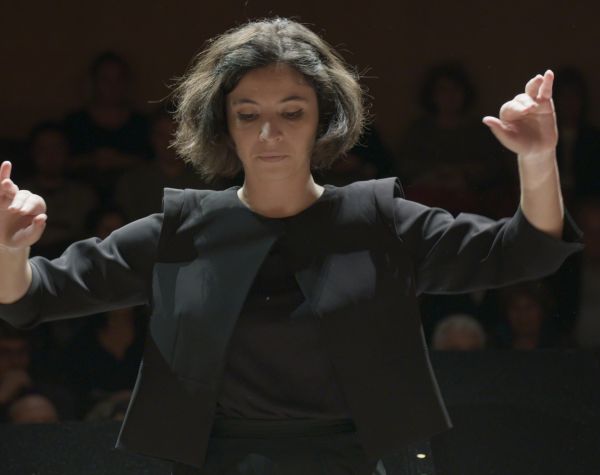
Kapralova
Czech composer Vítězslava Kaprálová was 22 years old when she left to study music in Paris in 1937. Three years later, she died of illness. This documentary, conceived as a dialogue across time and generations, follows in her footsteps. The short but intense period of the composer's life is reconstructed using archival footage and letters full of immediate impressions that the young artist shared with her family in Czechoslovakia. Her legacy is brought to life in parallel thanks to a new generation of conductors, such as Bianca Maretti, who rehearses some of her predecessor's compositions with an orchestra. Kaprálová's portrait thus becomes a tribute to all women who, despite language barriers, prejudices, and their origins, have managed to make their mark in the world of classical music. “In Paris, they are preparing for war. We are waiting anxiously to hear what Hitler will say today. We believe it will be decisive for the entire development of the situation.” — quote from the film
director: Petr Záruba
original title: Kaprálová
country: Czech Republic
year: 2025
running time: 70 min.
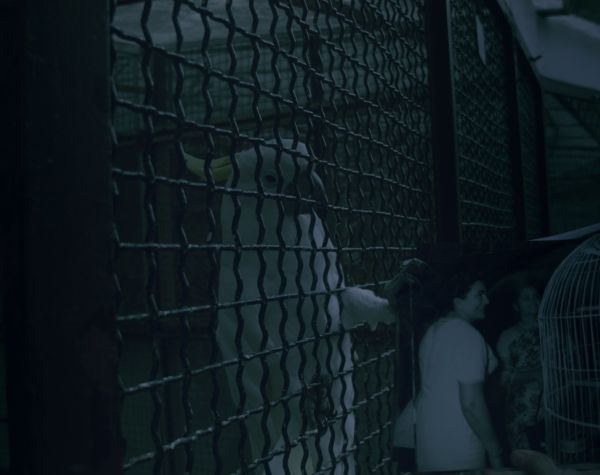
Koki, Ciao
Kakadu Koki was the favourite parrot of Yugoslav dictator Josip Broz Tito. He can talk, and his vocabulary is quite unrefined. But what is even more incredible is that he is still alive! He is shown as an animal curiosity to tourists visiting the Brijuni Islands, the site of Tito's former luxury residence. Koki's statements and sayings, which the director recorded over four years, form the basis of the film's soundtrack. Unknown or lesser-known visual material is inserted into the comic contrast, showing Koki and Tito meeting dignitaries and celebrities of bygone times – Khrushchev, Ceaușescu, and Sophia Loren. “I’ve had a lifelong fascination with stories told from the point of view of animals.” — Quenton Miller
director: Quenton Miller
original title: Koki, Ciao
country: Netherlands
year: 2025
running time: 11 min.
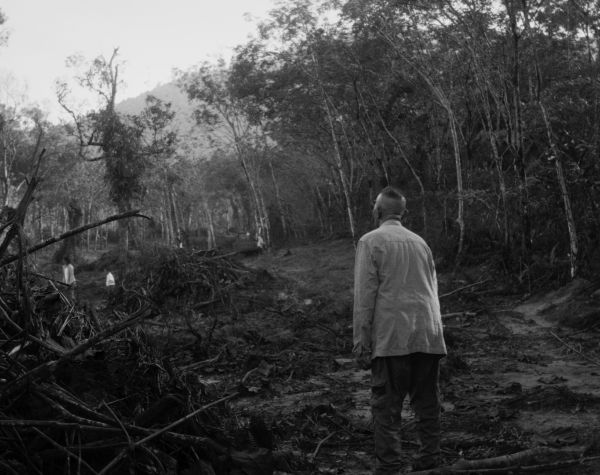
Latex Labyrinth
When British colonizers first planted rubber trees in Malaysia, they paved the way for the future of the local economy, and the economic and cultural subjugation of the population. Accompanied by folk songs, an old man awakens in this poetic documentary, and begins to dance despite the deforested horizons of the present. “I’m interested in the juxtaposition of textures in music and tempo in film, while translating the synthesis of sound, music, text and narrative into a symphonic sky of stars on a cloudless dark night – an encompassing space that is sincere, complex and has power to heal.” — Wey Yinn Teo
director: Wey Yinn Teo
original title: Latex Labyrinth
country: Malaysia, Singapore
year: 2025
running time: 12 min.
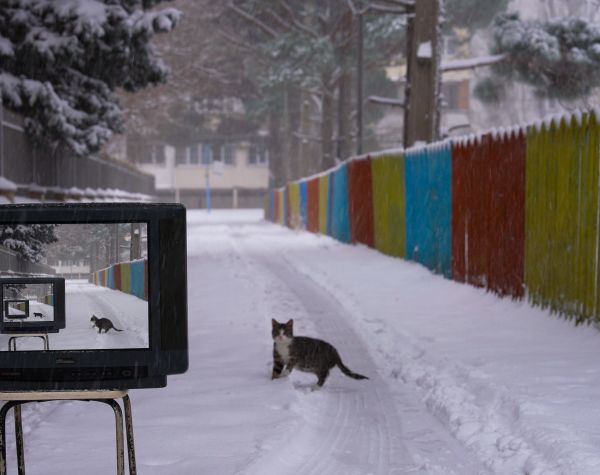
Palaces of Memory
Against the backdrop of his hometown and momentous historical events, the director seeks the answer to a seemingly simple question: What is my very first memory? As the film progresses, the audiovisual topography of memory transforms into a labyrinth where trauma and disappointment may lurk around every corner, and yet we continue to navigate through it. “The director, who wants to return to the most interesting period of his childhood, wanders the streets of the city where he was born and raised, to find traces of those years. This trip brings him to the place of his first memory.”
director: Matlab Mukhtarov
original title: Yaddaş sarayları
country: Azerbaijan
year: 2024
running time: 23 min.
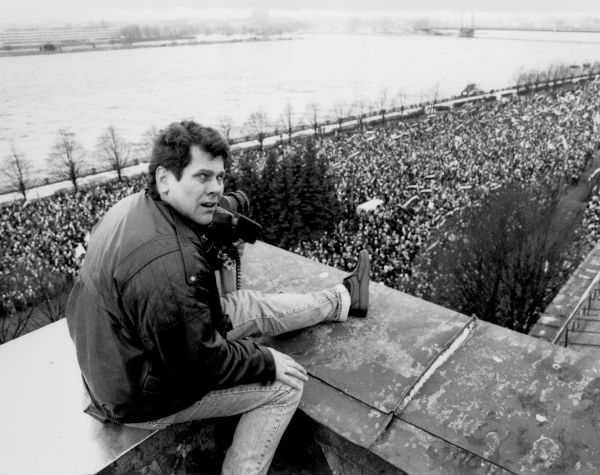
Podnieks on Podnieks. A Witness to History
Latvian documentary filmmaker Juris Podnieks (1950–1992) gained worldwide attention for his relentless need to “be there,” but also for his ability to capture unique moments of the pulsating present. This urgent documentary portrait, using personal diaries, photographs and film footage, presents the fascinating life journey of a filmmaker who reflects on his obsession but is unable to control it. The need to capture “the death of the monster”, the collapse of the Soviet Union and the Latvian struggle for freedom proved fatal for him and his long-time colleagues. The unclear circumstances of his death highlight the magnitude of the unfinished work of this leading figure in European documentary filmmaking. “In the West, they see it as a movie. They do not understand that in this ‘perestroika’, people’s destinies are being decided. And it is creating immense pain. We even call it an awakening, but nobody really wants to wake up.” — Juris Podnieks, 1987
director: Anna Viduleja, Antra Cilinska
original title: Podnieks par Podnieku. Laika liecinieks.
country: Latvia
year: 2025
running time: 128 min.
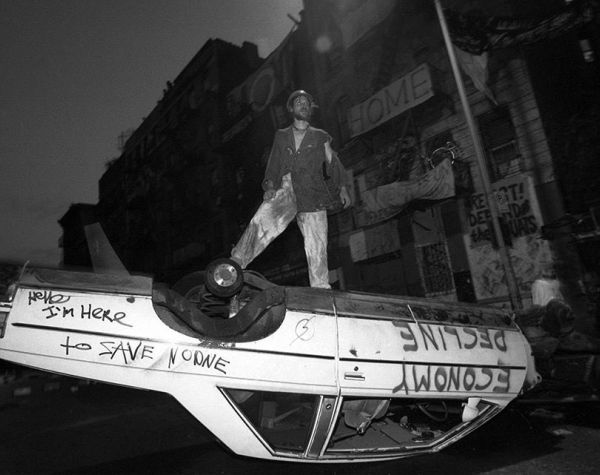
Survival Without Rent
During the 1980s, there were hundreds of abandoned houses in New York that their owners were unable to maintain. They were taken over by squatters, who used their own hands to build homes, but also a utopian community, based on anti-capitalist principles. Archival footage and testimonies map their story, until their forced eviction in the 1990s. “Survival without rent: This is a book to help people take back homes that have been taken away from them by government and business.”
director: Elana Meyers, Katie Heiserman
original title: Survival Without Rent
country: United States
year: 2025
running time: 21 min.
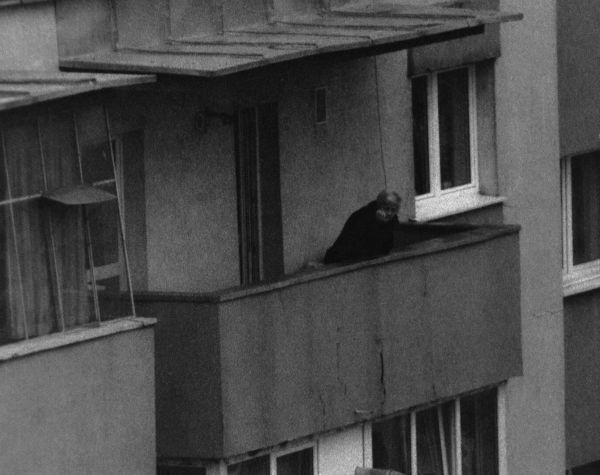
Talking Shadows
Through its secret service, the Securitate, the Romanian communist regime built a monstrous system of spying and mutual surveillance of its own citizens. This stylized documentary, imitating the optics of hidden cameras, reveals in three short interviews the terrifying dimensions that the need for pervasive control can take on. “Film is to her a medium with a particular quality that implies a fundamentally concrete relationship with time.” — Lévana Schütz’s website
director: Lévana Schütz
original title: Umbrele vorbesc
country: Romania, Switzerland
year: 2025
running time: 15 min.
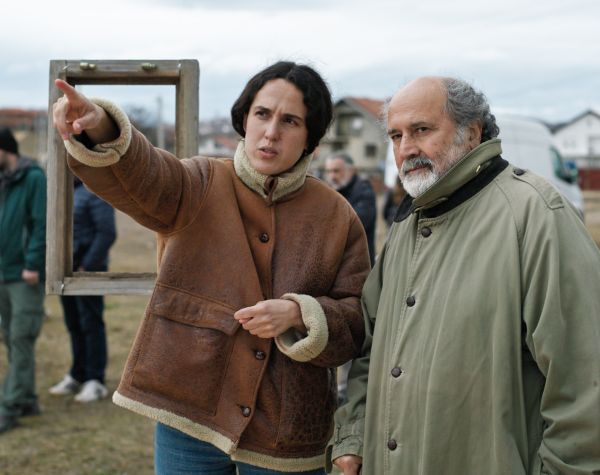
The Beauty of the Donkey
After decades in exile, Asllan returns with his daughter to his native village in Kosovo to work with local residents to revive the world of his childhood, which was destroyed by war. Through staged memories, interviews with eyewitnesses and intensive collaboration with the community, he attempts to uncover the truth about the past and understand how it shaped the present. The process of reconstructing memories reveals the tension between an idealised past and a reality marked by loss, trauma and uprooting. The donkey present in the story serves as a metaphor for patience, continuity and memory, but at the same time it is a very real, symptomatic animal for village life and the daily rhythm of the community. The intimate dialogue between father and daughter transforms into a broader reflection on collective memory, identity and man's relationship to home, with the film showing the power of community in the shared search for meaning and understanding. The work combines elements of documentary reconstruction, performative gesture and poetic realism, creating a multi-layered statement about the relationship between the past and the present. “Everything was so present and intense. All of us were vivacious.”
director: Dea Gjinovci
original title: La Beauté de l'Âne
country: Kosovo, Switzerland, France, United States
year: 2025
running time: 76 min.
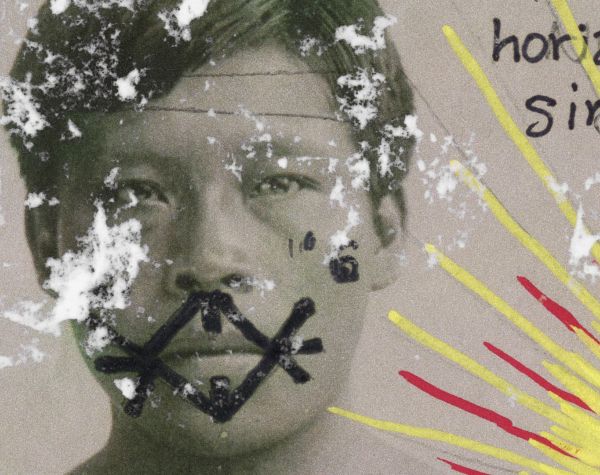
The Memory of Butterflies
A documentary investigation into the fate of two Amazonian natives who were brought to European civilization at the beginning of the 20th century turns into a sensory travelogue through a landscape of archival and contemporary footage. Images of the old and new worlds pile up on top of each other, colliding or slowly flowing by like the Amazon River. In fleeting moments, in photographs, in diary entries, Aredomi and Omarino rise to the surface of history before disappearing again, perhaps forever. The shameful history of inhumane treatment of indigenous tribes is also a painful chapter in the story of the director's family. This is one of the reasons she embarks on this journey. “I didn’t want to repair this history, because I don’t think it’s possible to repair anything, but I do think it is possible to transform.” — Tatiana Fuentes Sadowski
director: Tatiana Fuentes Sadowski
original title: La memoria de las mariposas
country: Peru, Portugal
year: 2025
running time: 77 min.
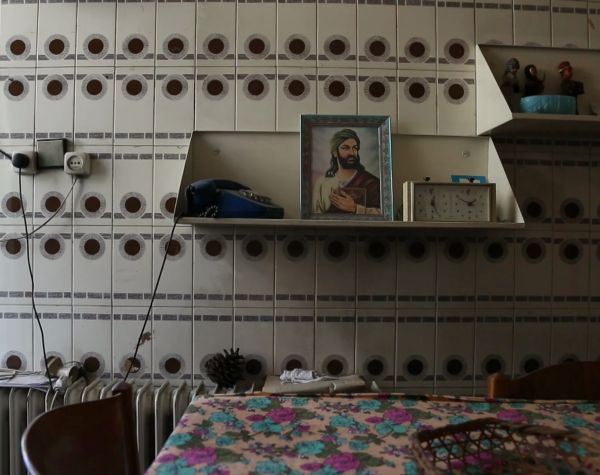
The Vanishing Point
The camera pans several times across the empty apartment. It seems spacious, unused, neglected. In this autobiographical film, the director returns to the places where her family lived before they were forced to flee the country. With its transformation into an authoritarian theocracy after 1979, Iran became a regime that oppressed many groups of the population—primarily women, but also advocates of liberal values and secularization. It was as if, almost overnight, the Middle Eastern country had become a different society. In the film, we cross this invisible boundary between the old and new worlds several times and, together with its author, try to catch the vanishing point on the horizon of both the past and the future. “My work is one concerned with the labour of memory, an attempt to make a placeholder for more to come forward, and an invitation to reflect together and participate in the archive.” — Bani Khoshnoudi
director: Bani Khoshnoudi
original title: Noghteh-e-Goriz
country: Iran, United States, France
year: 2025
running time: 103 min.

Unearthed
In 1967, extensive archaeological excavations took place near the Auschwitz-Birkenau concentration camp, during which over 16,000 objects belonging to deportees were uncovered. The excavations became the subject of a 14-minute documentary film, shot on location by director Andrzej Brzozowski. Ania Szczepańska followed in the footsteps of this film and the entire event with her film Unearthed, which she worked on for 14 years. Her documentary follows the author’s search for the circumstances surrounding the making of the film, and the significance of the excavations themselves. The history of Polish short documentary films, often screened in cinemas as supporting films, intertwines with the history of archiving related to the history of concentration camps in Poland. The director also films herself and her crew discussing more general topics related to the perception of recent history, and its impact on the present, which is currently shaken by many new military conflicts.
“I began my investigation not knowing that this 14-minute film would occupy me for 14 years, that it would change how I view Poland, that it would change me, period.”
director: Ania Szczepanska
original title: Sous la terre
country: France, Poland
year: 2025
running time: 62 min.
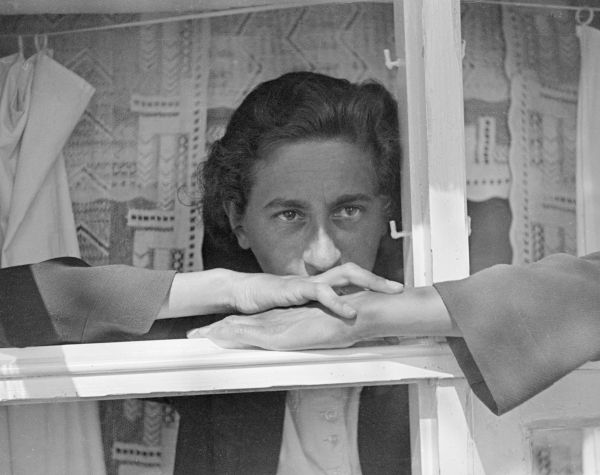
Weaving Anni Albers
Anni Albers was a prominent member of the interwar Bauhaus art movement in Germany. After Hitler came to power, she left her native country and devoted herself to her work with unwavering passion in the USA. Weaving textile patterns was more than just an aesthetic activity for her; she saw the intertwining of threads as a tangible projection of the very fabric of reality. “Art is something that makes you breathe with a different kind of happiness.” — Dedar
director: Alessandro Del Vigna
original title: Weaving Anni Albers
country: Italy
year: 2025
running time: 9 min.










